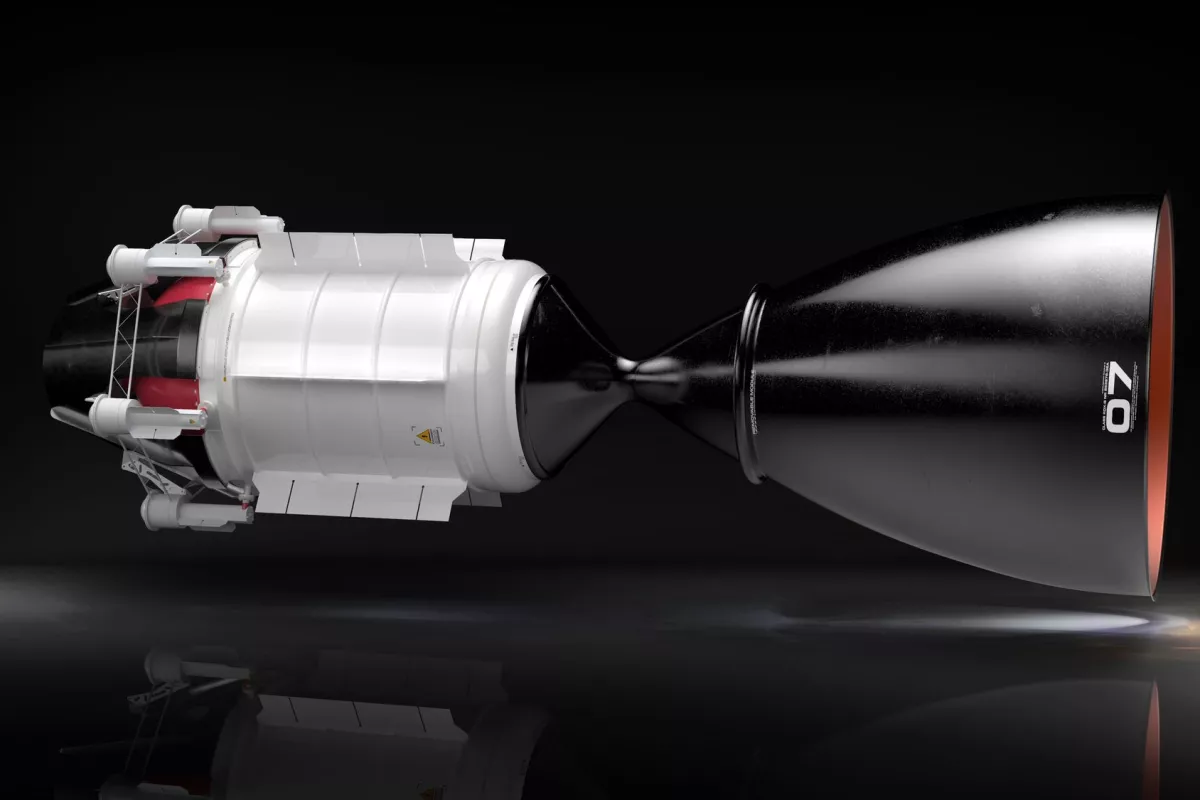Seattle-based Ultra Safe Nuclear Technologies (USNC-Tech) has developed a concept for a new Nuclear Thermal Propulsion (NTP) engine and delivered it to NASA. Claimed to be safer and more reliable than previous NTP designs and with far greater efficiency than a chemical rocket, the concept could help realize the goal of using nuclear propulsion to revolutionize deep space travel, reducing Earth-Mars travel time to just three months.
Because chemical rockets are already near their theoretical limits and electric space propulsion systems have such low thrust, rocket engineers continue to seek ways to build more efficient, more powerful engines using some variant of nuclear energy. If properly designed, such nuclear rockets could have several times the efficiency of the chemical variety. The problem is to produce a nuclear reactor that is light enough and safe enough for use outside the Earth's atmosphere – especially if the spacecraft is carrying a crew.
According to Dr. Michael Eades, principal engineer at USNC-Tech, the new concept engine is more reliable than previous NTP designs and can produce twice the specific impulse of a chemical rocket. Specific impulse is a measure of a rocket's efficiency.
To fuel the concept, UNSC-Tech uses a Fully Ceramic Micro-encapsulated (FCM) fuel to power the engine's reactor. This fuel is based on High-Assay Low Enriched Uranium (HALEU), which is derived from reprocessed civilian nuclear fuel and is enriched to between 5 and 20 percent – greater than that of civilian reactors and less than that of naval reactors. The fuel is then encapsulated into particles coated with zirconium carbide (ZrC).
The company claims that this fuel is much more rugged than conventional nuclear fuels and can operate at high temperatures. This produces safer reactor designs and a high thrust and specific impulse that could previously only be obtained with highly-enriched uranium. In addition, such fuel can be produced with current supply chains and manufacturing plants.
It is hoped the new concept could lead to nuclear engines that reduce deep space mission times drastically, with a crewed mission to Mars arriving in as little as three months. Beyond that, the concept is aimed at a commercial market as well as with NASA and the US Department of Defense, allowing for more ambitious private missions.
"Key to USNC-Tech’s design is a conscious overlap between terrestrial and space reactor technologies," says Dr. Paolo Venneri, CEO of USNC-Tech. "This allows us to leverage the advancements in nuclear technology and infrastructure from terrestrial systems and apply them to our space reactors."
The project is part of a study managed by Analytical Mechanics Associates (AMA) for the space agency regarding NTP flight. USNC-Tech says the concept was "designed to enable a successful near-term system demonstration and reduce barriers to full-scale deployment," but we suspect a sixth month round trip to Mars is probably still some way off.
Source: Ultra Safe Nuclear Technologies





